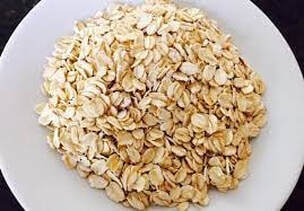David Tickner's Blog, page 32
May 4, 2021
The hills are alive
 Found poem...
Found poem...
A lot has happened
in the past 165m years.
And all the while
a species of bacterium
desulforudis audaxviator
which lives deep underground
and feeds
on chemicals extracted from rocks
has continued merrily along
without
any apparent change at all.
Desulforudis
derives its energy
by
reacting sulphate ions
with
hydrogen molecules.
From the rocks
which it inhabits
it scavenges
the carbon and nitrogen atoms
which it requires
to assemble the organic molecules
from which it is built.
It looks as if
desulforidis
did indeed migrate
across the world
through the rocks
in which it lives.
Ref: Gold bug: Evolutionary stasis, The Economist, 24 April 21, page 69.
https://www.economist.com/science-and...
Published on May 04, 2021 20:26
Metaphor
 Have you ever thought about how often you use metaphors in everyday speech and writing?
Have you ever thought about how often you use metaphors in everyday speech and writing?The word metaphor has its origins in the Proto-Indo-European (PIE) root bher(1) (to carry) and Greek pherein (to carry, to bear). Greek meta (a transformation; e.g., metamorphosis; more comprehensive; e.g., metaphysics) + pherein = metapherein (to transfer, carry over; to change) and Greek metaphora (a transfer). The word metaphor comes to English in the late 15th century via 13th century Old French metafore and Latin metaphora. A metaphor carries or transfers meaning from one word to another word in such a way that a new idea or meaning is created.
Metaphors help us talk of things for which words may be inadequate or for which there may be no words at all. A metaphor is a figure of speech in which a meaning from one word is ‘carried’ or ‘transferred’ to another word; e.g., Time > money; time is money. The concept of time is complex but money we understand.
Our perception of ‘time is money’ can be seen in common phrases such as wasting time, this tool will save you hours, spending your time, running out of time, living on borrowed time, thank you for your time, and so on.
How about love? Here are two metaphors: Love is a journey. Love is a collaborative work of art.
Love is a journey: Look how far we’ve come together. We can’t turn back now. I don’t think this relationship is going anywhere. Our marriage is on the rocks. It has been a long and bumpy road but once we get over the hump, it will be smooth sailing.
Love is a collaborative work of art: How do you see the world? What kind of life do you want to create? Let’s work together. Let’s create something beautiful. Love takes patience—we have to wait for the paint to dry.
In brief, say Lakoff & Johnson, “Metaphor plays a very significant role in determining what is real for us” (146). Metaphors not only illuminate our perceptions but also inform our actions.
In closing, “Metaphors be with you.”
Reference: Online Etymological Dictionary, https://www.etymonline.com/
Lakoff, G. & Johnson, M. (2003). Metaphors we live by. Chicago. University of Chicago Press.
Published on May 04, 2021 07:47
May 2, 2021
Bannock
 The Online Etymological Dictionary suggests that Gaelic bannach (a cake), the source of the word bannock, is perhaps a loan-word from Latin panis, which in turn has its origins in the Proto-Indo-European (PIE) root pa (to feed, to protect).
The Online Etymological Dictionary suggests that Gaelic bannach (a cake), the source of the word bannock, is perhaps a loan-word from Latin panis, which in turn has its origins in the Proto-Indo-European (PIE) root pa (to feed, to protect).In brief, the word bannock (a thick flat cake or bread baked on the hearth or under ashes) comes from Gaelic bannach via Old English bannuc. The Online Etymological Dictionary also suggests that bannuc may be the source of the word bun.
David Crystal, the noted linguist, has observed that very few everyday Old English words have such a clear Celtic connection. Bannach is one of these words, along with brock, crag, wan, dun, and a dozen or so others (Crystal, 2013, 37).
Here’s a question: In pre-contact indigenous North American societies, was bannock a local food or was it a later import; e.g., from Scotland via the fur trade? There is no clear answer to this question. Some suggest a type of bannock (similar to corn bread) may have been made from North American sources such as maize or camas bulbs. Others disagree. I will leave this question to the experts for further research and discussion.
Other words from PIE pa include company (literally, ‘with bread’ or ‘sharing bread’!), food, forage, pabulum, pannier, pantry, pastor, pasture.
Reference: Online Etymological Dictionary, https://www.etymonline.com/
Crystal, David. (2013). The story of English in 100 words. New York: Picador.
https://en.wikipedia.org/wiki/Bannock_(food)
Published on May 02, 2021 11:35
April 28, 2021
Refrigerium, Refrigerator, Fridge
 Would you be interested to know that the word refrigerator is a descendant of an ancient word meaning a picnic in a graveyard? Why does the word fridge have a ‘d’ but the word refrigerator does not? Curious? Read on…
Would you be interested to know that the word refrigerator is a descendant of an ancient word meaning a picnic in a graveyard? Why does the word fridge have a ‘d’ but the word refrigerator does not? Curious? Read on…The word refrigerate has its origins in the Proto-Indo-European (PIE) root srig (cold) and Latin frigus (cold, coldness, frost), frigere (to be cold), refrigerare (cooling), and refrigerium.
In the days of the Roman Empire, Latin refrigerium referred to a period of coolness, not in the sense of temperature, but in the sense of refreshment, a ‘cooling down’ after a period of grief and mourning following the death of a friend or relative. A refrigerium was seen as a time for rest and relief, comfort and consolation, not only for the mourners but also for the deceased.
In particular, a refrigerium referred to a commemorative meal eaten beside the grave of the deceased. Such meals were held on the day of burial, on the ninth day after the funeral, and then annually. Early Christians continued this ritual, taking meals to graveyards to honor the deceased, not only to remember the dead but in the hope of being remembered by the dead.1
The verb ‘to refrigerate’ comes to English in the 1530s from Latin refrigerium (refreshment) and refrigerare (to make cool or cold). A refrigerator, something that cools, is from the 1610s. A refrigerator as a cabinet for keeping food or drink cool (especially in a brewery) is from 1824. Refrigerator as an electrically powered household device is from around 1918. The sense of ‘coolness’ not just in terms of temperature but also in terms of refreshment has continued from ancient times.
So, what about the ‘d’ in fridge? As you might expect, fridge is a shortening of frigid (intensely cold), a word which came to English in the 1620s and which has its origins in Latin frigidus (cold, chill, cool; from Latin frigere). On a side note, by the 1650s, the term frigid also meant “lacking in sexual heat” and originally referred to men.
One of the first self-contained automatically operated iceless refrigerators was the Frigidaire, first produced in 1919 by (strangely enough) the Frigidaire Corporation. The word Frigidaire is from Latin frigidarium (a cooling room in a public bath). Fridge is a short way of saying Frigidaire and now means any brand of refrigerator. In brief, any refrigerator is a fridge.
1 “For many ancient persons, memory was far more than a passive storage space. It implied an act of will … memory was a tool of social cohesion. To remember, to ‘hold in the mind’ was not to store away a fact: it was to assert a bond, to be loyal, and to pay attention. Forgetfulness was not a mere absence of mind but an aggressive act” (Brown, 2015, 39).
References: Online Etymological Dictionary, https://www.etymonline.com/
Brown, Peter. (2015). The ransom of the soul: Afterlife and wealth in early western Christianity. Cambridge, MA: Harvard.
https://en.wikipedia.org/wiki/Refrigerium
https://www.encyclopedia.com/religion/encyclopedias-almanacs-transcripts-and-maps/refrigerium
https://www.lexico.com/definition/refrigerium
Published on April 28, 2021 19:47
April 25, 2021
Cherish
 The word cherish carries deep feeling. Thankfully, unlike other similar words, the word does not seem to have become overused or drenched in sentimentality. Usually when people use the word, they mean it.
The word cherish carries deep feeling. Thankfully, unlike other similar words, the word does not seem to have become overused or drenched in sentimentality. Usually when people use the word, they mean it.The word cherish has its origins in the Proto-Indo-European (PIE) root ka (to like, to desire) and Latin carus (dear, costly, beloved). Latin carus is the source of Italian, Spanish, and Portuguese caro.
In the early 14th century, the verb cherischen (to cherish, to hold as dear, to treat with tenderness and affection) comes to English from Old French cheriss and cheirir (to hold dear)
Latin carus and Italian caro are the source of Italian carezza (endearment) which comes to English in the 1640s as caress (a show of endearment, display of regard). In addition, Latin carus is the source of the word charity.
Cherish, caress, charity—all rooted in PIE ka.
Reference: Online Etymological Dictionary, https://www.etymonline.com/
Published on April 25, 2021 10:05
April 21, 2021
Oats
 Do you ever use the Aveeno line of skin care products? Or do you know someone who uses such products? Do you know that such products are made from oats?
Do you ever use the Aveeno line of skin care products? Or do you know someone who uses such products? Do you know that such products are made from oats?The word oat first appears as Old English ate and Middle English ote. Before that, the origins of the word are unknown.
Proto-Germanic words for oats include Old Norse hafri and Dutch haver. The word haversack or ‘oat sack’, from the 18th century, was the name of a bag carried by a cavalry trooper which contained food for his horse.
The Latin or scientific name for the common oat plant is avena sativa.
Aveeno skin care products made from avena sativa. Wouldn’t it be cheaper just to put oatmeal porridge on your face?! You could eat and do your face at the same time. I suspect Jennifer Aniston may beg to differ on this.
Also, if you go to Starbucks these days and order a coffee with oat milk, speak clearly or you might get your coffee given to you black.
Reference: Online Etymological Dictionary, https://www.etymonline.com/
Published on April 21, 2021 08:19
April 18, 2021
Sun Light
 The English words sun and light come to us almost unchanged from their origins. Just as the same sun shines on us as it did on our ancestors, the same words or sounds have been passed to us from generation to generation.
The English words sun and light come to us almost unchanged from their origins. Just as the same sun shines on us as it did on our ancestors, the same words or sounds have been passed to us from generation to generation.Sun
The word sun comes from Old English sunne and Proto-Germanic sunno (also the source of Old Norse, Old Saxon, Old High German sunna, Middle Dutch sonne, Dutch zon, German Sonne, and Gothic sunno). The source of these words is the Proto-Indo-European (PIE) s(u)wen (sun).
In ancient times, these words and pronouns for sun were feminine; e.g., “She shines her light on us.” In some Germanic languages the feminine still prevails; however, in English, from the 16th century, the sun came to be considered as male. Nowadays, this gendered reference to the sun in English is obsolete. The sun is now an ‘it’.
Light
Similarly, the word light comes from Old English leht (Anglian) and leoht (West Saxon) from Proto-Germanic leukhtam (also the source of Old Saxon lioht, Old Frisian liacht, Middle Dutch lucht, Dutch licht, Old High German lioht, German Licht, Gothic liuhap). The source of these words is the PIE root leuk (light).
Sunlight
The word sunlight comes to English around 1200 from PIE s(u)wen + leuk and from Proto-Germanic languages, for example, German sonnenlicht.
I wonder if the pattern of unchanging or little changing words for the sun is the same in other languages. Hmmm… more research.
But now it is time go and enjoy the sunlight outside, not just the sunlight streaming through my window.
Reference: Online Etymological Dictionary, https://www.etymonline.com/
Published on April 18, 2021 11:12
April 16, 2021
Apricot
 My wife and I were having breakfast. Looking at the jar of apricot jam on the table, my wife asked, “Why does the French word start with ‘ab’ and the English word starts with ‘ap’?” I should mention we live in Canada—i.e., bilingual food labels.
My wife and I were having breakfast. Looking at the jar of apricot jam on the table, my wife asked, “Why does the French word start with ‘ab’ and the English word starts with ‘ap’?” I should mention we live in Canada—i.e., bilingual food labels.And so began another word search. Where does the word ‘apricot’ come from and why both ‘ap’ and ‘ab’? Let’s trace apricot’s journey around the Mediterranean from ‘p to ‘b’ and back to ‘p’ again.
Some sources suggest that apricots were first found in ancient Armenia. Others suggest the Himalayas. The word apricot probably comes from Latin malum praecoquum, malum meaning fruit and praecoquum meaning early ripening. In short, an apricot was a praecoquum. (Preacoquum is also the origin of the word precocious; for example, a precocious or ‘early ripening’ child).
The Latin terms praecoquum and praecox found their way to Byzantine Greek berikkokia and then to Arabic al-birquq. During the Islamic predomination of the Mediterranean in the years following the decline of the Roman Empire, Arabic al-birquq came to Portuguese as albricoque, to Spanish Catalan as abercoc, and later to medieval France as aubercot, eventually becoming French abricot. From these origins, the word abrecock is first seen in English during the 1550s.
So why did the English word become apricot instead of abrecock? An English etymological dictionary from 1671 uses apricot. Why? The noted etymologist, Anatoly Liberman, suggests that "the abr had been changed to apr for no obvious reason”! Perhaps a spelling error? A tired copywriter? Who knows?
Perhaps the editor of the 1671 dictionary had a preference or predisposition for Latin; i.e., ‘p’ represents the apricot’s Latin roots whereas ‘b’ represents the word’s Arabic roots. In any case, the ‘apr’ version of the word apricot in English appears to be a full-circle return to its Latin origins.
The apricot fruit was introduced to England in 1524. The first known use of the word apricot is from 1580. The Latin or scientific name for apricot has been both prunum armeniacum and malum armeniacum, based on the supposed origin of the apricot in Armenia. The name of the color ‘apricot’ is from 1906.
Reference: Online Etymological Dictionary, https://www.etymonline.com/
https://blog.oup.com/2012/08/word-origin-apricot-etymology/
Published on April 16, 2021 08:05
April 12, 2021
Guitar
 Where does the word guitar come from? For that matter, where do guitars come from? Who knows? Instruments resembling guitars are seen in many ancient cultures.
Where does the word guitar come from? For that matter, where do guitars come from? Who knows? Instruments resembling guitars are seen in many ancient cultures.The oldest image of what appears to be a ‘guitar’ is a 3,300-year old stone carving of a Hittite bard playing a stringed instrument. Clay tablets from ancient Babylon show people playing a guitar-like instrument. The Hindi word sitar, from Persian sitar, means ‘three-stringed’, from Old Persian thri (three) + tar (string; from Proto-Indo-European ten = to stretch).
The musical instrument we now call a guitar comes from Spain. The instrument has its origins in the European lute and the Arabic oud. Medieval Spain had two types of guitars: the guitarra latina (the Latin guitar) with one sound hole and the guitarra morisca (the Moorish guitar) with several sound holes. By the 14th century, both instruments were simply referred to as guitarra (guitar).
The word English word guitar (from the 1620s), German Gitarre, and French guitare all come from 14th century Spanish guitarra which in turn comes from the medieval Andalusian Arabic qitharah which in turn seems related to Latin cithara (interestingly, pronounced as ‘sitara’) and from Greek kithara (lyre; a word which appears in early Greek versions of the Bible and which is usually translated to English as harp. I can’t help but think of contemporary angels playing guitars rather than harps—but I digress).
Etymologists do not agree on whether Arabic or Latin sources are the origins of the Spanish word guitarra. What does seem clear, however, is that various plucked string instruments from ancient times made their way to medieval Spain from both Latin and Arabic sources.
The word guitarist is from 1770.
Image: Johannes Vermeer, The guitar player, c.1672
Reference: Online Etymological Dictionary, https://www.etymonline.com/
Published on April 12, 2021 10:15
April 10, 2021
Goth, Gothic
 Why does the term Goth often have such dark and disconcerting overtones?
Why does the term Goth often have such dark and disconcerting overtones?The origins of the word Goth are unknown. The Goths were an ancient Germanic people who lived in Eastern Europe; in particular, in the region of the lower Danube. The Goths called themselves Gutos or Gutbiuda (Gothic people). The ancient Greeks and Romans called them Gothos. The Old English word Gota is first seen around the end of the 1st century CE.
During the early years of the Christian church the Goths became Arian Christians, one of the many Christian sects of the time. During the evolution and development of mainstream Christian orthodoxy in the 4th to 7th centuries, the Arian sect was increasingly perceived and persecuted for heresy.
It didn’t help that Arian Goths sacked Rome in 410 CE. In addition to being heretics, Goths were now perceived as barbarous, rude, and cruel.
Goths have had a bad name ever since! Seems like some words have long memories!
However: The ‘Gothic’ art style that emerged in northern Europe in the Middle Ages (e.g., Gothic cathedrals such as Notre Dame in Paris) has nothing to do with the ancient Gothic people. Apparently, this use of ‘Gothic’ was originally a derogatory term used by Italian architects of the Renaissance in their scornful reaction against northern European architecture.
The Gothic typographic lettering style used for German text is from 1781 in England.
In the 19th century, the term ‘Gothic revival’ referred to a style of architecture and decorating that harked back to the Middle Ages. Also, in the late 18th and 19th centuries, the term Gothic referred to a literary style used to suggest horror and mystery (i.e., the ‘Gothic’ novel; for example, Frankenstein and Dracula).
The modern use of the term Goth refers to the punk rock subculture which emerged in London in the early 1980s.
Reference: Online Etymological Dictionary, https://www.etymonline.com/
Published on April 10, 2021 10:32



